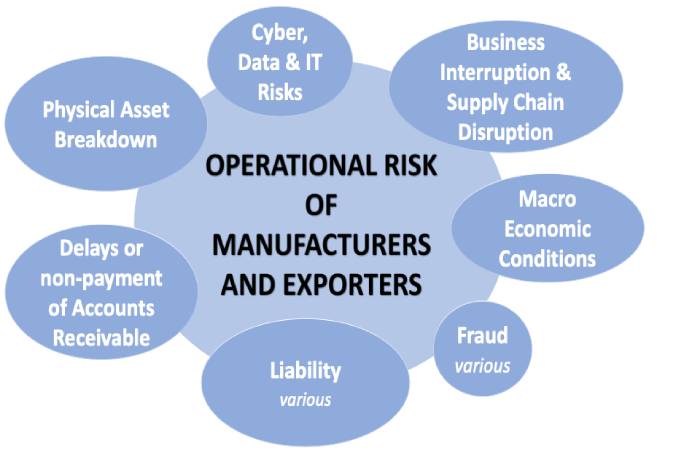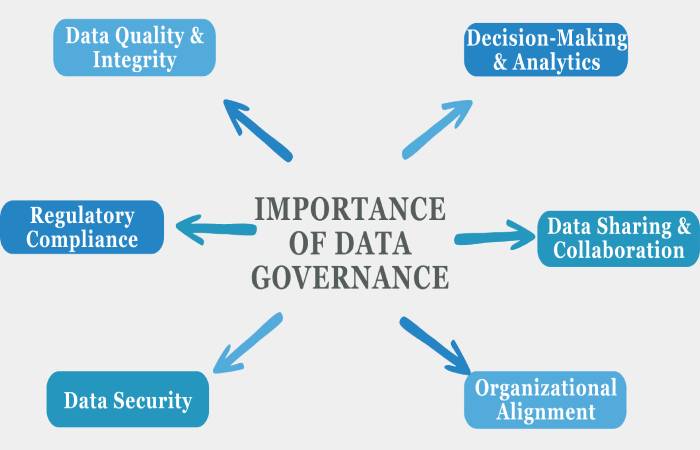Table of Contents
Introduction
Why Data Management is Crucial for Minimizing Operational Risk – Effective data management is crucial for businesses to minimize operational risk and improve performance in today’s data-driven world. By implementing proper data management practices, organizations can ensure the accuracy, security, and accessibility of their data, leading to better decision-making and increased efficiency. In this article, we’ll explore the importance of data management and how it can benefit your business.
What is the operational risk?
Operational risk is the possibility of suffering losses due to internal processes, people, and systems that are insufficient or fail, as well as external occurrences. This can include anything from human error to natural disasters to cyber-attacks. Effective data management can help mitigate operational risk by ensuring that data is accurate, up-to-date, and easily accessible. This allows businesses to make informed decisions and respond quickly to potential threats.

The importance of accurate and timely data.
Accurate and timely data is crucial for minimizing operational risk. Without it, businesses may make decisions based on incomplete or outdated information, leading to costly mistakes. For instance, a corporation may wind up with excess inventory or defective products to satisfy demand if it bases production decisions on erroneous sales data. Timely data is also essential, as delays in accessing information can lead to missed opportunities or increased risk. Effective data management ensures that data is accurate, up-to-date, and easily accessible, reducing the potential for operational risk.
The advantages of centralizing data management.
A centralized data management system offers many benefits for minimizing operational risk. By consolidating data from various sources into a single location, businesses can ensure that all stakeholders have access to the same information, reducing the potential for miscommunication or errors. This also allows for more accessible analysis and reporting, as data can be quickly and easily accessed and manipulated. Additionally, a centralized system can improve data security, as access can be restricted and monitored more effectively. Overall, a centralized data management system is crucial for businesses looking to minimize operational risk and improve performance.
The role of data governance in minimizing operational risk.
Data governance is critical in minimizing operational risk by ensuring data is accurate, consistent, and secure. This involves establishing policies and procedures for data management, including data quality standards, data access controls, and data retention policies. By implementing a solid data governance framework, businesses can reduce the risk of errors, fraud, and other operational issues arising from poor data management. Data governance can also help companies to comply with regulatory requirements and industry standards, reducing the risk of non-compliance penalties and reputational damage.

The impact of data analytics on operational risk management.
Data analytics has revolutionized operational risk management by providing businesses real-time insights into their operations. Businesses may detect possible hazards and take proactive steps to reduce them by examining data from various sources. Data analytics, for instance, may assist companies in finding fraud patterns, spotting irregularities in financial transactions, and keeping track of regulatory compliance. Businesses may enhance their risk management methods and lessen the adverse effects of operational hazards on their bottom line by utilizing the power of data analytics.
Data Management Minimizes Operational Risk and Improves Performance
Data management involves acquiring, storing, organizing, maintaining, and efficiently utilizing data. Effective data management is critical to minimizing operational risk and improving performance for organizations of all types and sizes. Here are some ways in which data management can help achieve these goals:
Minimizing operational risk: Effective data management helps organizations reduce operational risk by ensuring that data is accurate, up-to-date, and easily accessible. This, in turn, ensures that critical decisions are based on accurate and timely information, which minimizes the risk of errors and improves overall operational efficiency. Additionally, data management helps ensure compliance with regulatory requirements and reduces the risk of data breaches or loss.
Conclusion
Why Data Management is Crucial for Minimizing Operational Risk – Improving Performance: Data management also helps organizations improve their performance by providing the correct data to the right people at the right time. With effective data management. Organizations can access and analyze data more quickly and accurately. Which allows them to make informed decisions that drive better business outcomes. Additionally, data management enables organizations to identify areas for improvement and implement data-driven strategies to optimize operations, increase productivity, and reduce costs. Effective data management is essential for organizations to minimize operational risk and improve performance.

